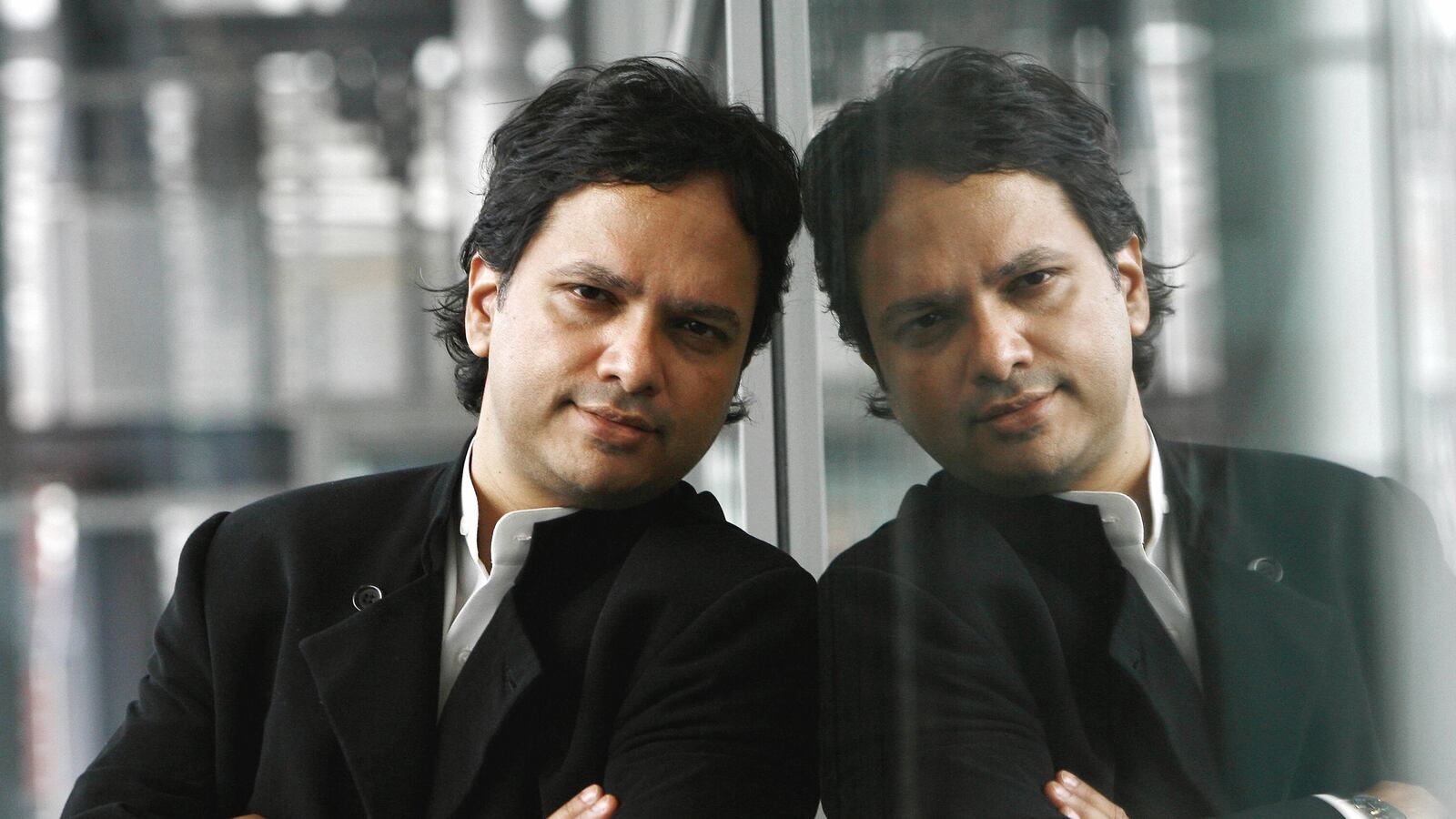When Vikram Chandra mentioned he was working on a nonfiction book about computer coding at a literary party in San Francisco last fall, I was startled. Chandra is a gifted and original novelist, author most recently of Sacred Games (2006), a sprawling, densely layered noirish detective story set in Mumbai. His first novel, Red Earth and Pouring Rain (1995), won the Commonwealth Writers Prize for best first book. Love and Longing in Bombay (1997) was shortlisted for the Guardian fiction award, and he also has written for Bollywood (he cowrote Mission Kashmir [2000]). Chandra is a writer, not a geek. What does he know about coding?
His new nonfiction book, Geek Sublime, shows that, like few in today’s literary world, the 53-year-old Chandra understands the esoteric scientific discipline. He is as conversant with HTML and Git as with metaphor and the twists and turns of plotting. “My writing life and my life with computers … seem mirrored, computer twinned,” he writes. “Both are explorations of process, of the unfolding of connections.”
And that’s what makes Geek Sublime so winning. Chandra, who lives in Berkeley and teaches at the University of California, has written a brilliantly comprehensible syllabus for anyone curious about the inner workings of computers or the Internet, profound in its implications and conclusions. It is a surprising and passionate book, encompassing a primer on terminology for non-mathematicians, an explanation of “logic gates,” a meditation on Sanskrit as an algorithm, and a section on what makes Steve Wozniak “hardcore.” (“Woz—and only Woz, by himself—designed the hardware, the circuit boards, and the operating system for the Apple I, which he hooked up to a standard TV, producing the first personal computer to output to a television,” Chandra explains. “And while Steve Jobs marketed this product, Woz created the Apple II, and thus—in a very large sense—set off the personal computer revolution.”).
How did Chandra’s obsession with code begin?
“I worked as a coder to put myself through college,” Chandra explains. “I first encountered computers as an undergraduate in the U.S. in the early ’80s. They seemed magical to me. At the time, the only computers in India, where I grew up, were at elite graduate schools and government institutions, and I had never even seen one. So I enrolled right away for programming classes, and found them boringly abstracted. A couple of years later, while I was in graduate school, I worked at an off-campus job that gave me access to personal computers—and that was the beginning of the addiction. There’s a great feeling of power, and instant feedback—if your code works, you get this rush; and if it doesn’t work, you hack at it until it does, and then the rush is even stronger.”
Chandra began to make money as a consultant and programmer when he was in the graduate writing program at the University of Houston, working on his formally complex first novel, Red Earth and Pouring Rain, which draws from the idea of interconnectedness in Indian traditions of narrative and philosophy. “My coding was and is very journeyman work,” he says. “I wrote a lot of database CRUD applications—they let you Create, Retrieve, Update, and Delete records of whatever widget or resource you were producing and selling. This was before easy, transparent accessibility to the Internet.” He managed to get through graduate school without taking any loans.
Chandra’s introduction to DOS was seductive, he says, because it was “a complete world, with systems and rules.” At what point did he realize code could aspire to elegance?
“I think the first time you have to change code you’ve written previously, to add features or remove a bug, you realize that you could have done it better in the first place, that you could have found an architecture that would make it easier to transform and grow the code. And this is terribly seductive—you’re not just building a solution to a problem, you’re potentially building a beautiful solution, with ‘beautiful’ here being defined here by an aesthetics of present and future functionality. This can be a trap.”
He describes two approaches to programming. “I think every programmer knows of a project or two that never quite got off the ground because everyone spent too much time thinking about what would be the best way to do it, what the best tools are, what the best process is. There has, in fact, been a reaction against this tendency. Now, often the advice is to get the quickest version of your code running and slap up a website; you’ll improve the code after you find users. Which of course means that the refinement often never gets done because there’s too much technical debt and it’ll cost too much and the venture capitalists may bail at any time.”
As a fiction writer, he says, he tends towards the first impulse: “I’m so used to laboring over my language at leisure, and I always know that a sentence can be made more resonant, that there’s always one more comma that can be moved.”
Why are programmers so prone to burnout?
“The pace of change in the computer industry is so frenetic that any programming skills you have today are likely to be outdated next year. So there is a very powerful imperative to keep learning, and an all-pervasive anxiety that you’re already obsolete. In Silicon Valley, you have the added fetishization of youth—the belief is that the next billion-dollar app will come from a 22-year old whose mind is still unshaped by too much knowledge, and who is therefore—supposedly—able to innovate freely. If you’re 45, you may be seen as too set in your ways to be useful to a startup, and also less likely to deliver 80-hour work weeks to the company, which is what ‘passionate’ programmers devoted to ‘disruption’ are supposed to do. So all this, plus the magical possibility of becoming a famous tech czar overnight, drives a lot of people into over-exertion on the corporate treadmill. Some finally collapse.”
Is there an equivalent risk for fiction writers (who usually work obsessively without the promise of that dazzling income)?

“Writers, like other kinds of artists, begin with assumptions of probable obscurity and relative poverty, so there’s less external pressure. There is certainly a tendency on the part of publishers to look for pretty young things with possible super-hit first novels, but I think age is less of a liability. The risks of the writer’s life come more from the internal processes of production, he adds. ”Frederick Busch wrote a terrific book about the writing life called A Dangerous Profession, in which he observes, ‘It costs too much to write.’ What he’s referring to are the emotional, psychic risks… You spend a lifetime inviting hauntings, which can render you a bit unbalanced—to put it delicately.”
And then there are the unexpected rewards. The very first email Chandra got about Geek Sublime, he says, was from a young programmer in India, who observed that “reading the book induced in him the heightened aesthetic sentiment of adhbuta, wonder. Which is where I began, with wonder at the connections that draw us together, across cultures and time.”






